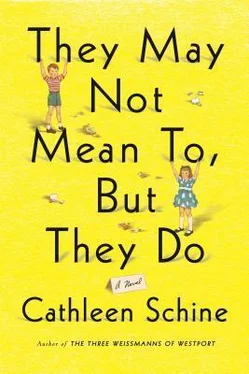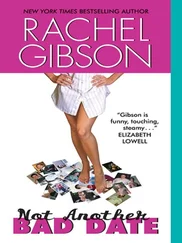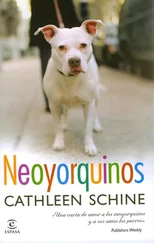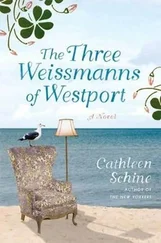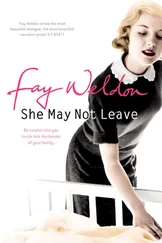She was overcome with self-consciousness. I do not belong here. I have no tattoo. I am out of place. My clothing is wrong. No, their clothing is wrong. How dare people come to a public hearing dressed for the beach? But that’s how it’s done these days, that must be how it’s done. I have lost touch with normal social behavior. I no longer know what is expected. And when I find out what is expected, undershirts and tattoos, I do not like it.
I do not belong here. I do not belong anywhere.
A gust of the place’s generalized resentment wafted over her for a moment, becoming her own resentment, resentment toward Ben for peeing in the street, resentment toward New York City for giving him no alternative, resentment toward the courtroom full of sweating people in shorts and flip-flops. Then the resentment eased into resignation, the room’s other mood, heavier, oppressive. Here I am, she thought, where I don’t belong. One more place in which I do not belong. A great spinning globe of places revolved beneath her feet, and not one patch of it was the right patch for her, Joy Bergman.
She thought of the museum, of her job, of Molly and Freddie and their house in California, of her own house Upstate, of her apartment with the windows looking over the white headlights and the red taillights and no one to sit beside to watch them.
The judge, who may or may not have been listening to the lawyer hollering information in his direction, perhaps he was deaf like Joy and all her friends, spoke softly into the lawyer’s ear, leaning forward, his hand cuffed over his mouth. He was no spring chicken. There were young men and middle-aged men in the pews, young women and middle-aged women, but there was no one, neither man nor woman, who approached Joy’s age, not even the elderly judge.
The big clock on the wall behind the judge proclaimed the time was now 3:39. Three thirty-nine p.m., Eastern Standard Time, Joy thought. Or was it Eastern Daylight Time? When young people said, “This is my time,” they meant it was the portion of their lives to treasure and to live fully. When old people said, “This is my time,” they meant it was their time to die.
Joy took a juice box from one of her bags, but a guard in a brown uniform shook his head and she put it back. She had already inserted the straw. It would leak.
She waited and watched the tattoos that went by. Some were so elaborate and colorful. She wondered if Ben had a tattoo, a hidden tattoo. So much about a young person’s life is hidden. So much about anyone’s life. That was a blessing. Other people’s secrets were so often tawdry and so rarely surprising, even the most extravagant gossip. Gossip was not what it used to be, which was to say, shocking.
Nothing was shocking anymore because everything was shocking. Public urination. Public urination certainly existed when Joy was young. It must have. But no one knew about it, or talked about it, or asked their grandmothers to go to court about it.
The room was hot and the air was stale. Joy noticed it blurring, first the heads of the people in front of her, then the walls. There was a golden light. Fluorescent light, yellow walls. A blurry room. Oh, a blurry room was never a good sign.
The man next to her said, “You okay, Mommy?” He smiled and fanned her with his New York Post.
For a moment she thought he was Danny. Who else would call her Mommy? But he was short and thickset and had a perspiring bald head, and the hand that held the newspaper was hairy and loaded with chunky gold rings. How beautiful that hand looked to her, bringing the gentle breeze.
“You are so kind,” she said. “Oh, thank you.”
The man on the other side of her offered her a Life Saver. Mint. Perfect. “You feel better, Mommy?” he asked.
“Yes, I do,” she said. “You are such gentlemen. Old-fashioned gentlemen.”
The room straightened itself out slowly.
Joy sucked on the Life Saver, felt the rim of the circle sharpen, sucked on it until it was a paper-thin sliver.
A man in front of her was called up for a broken taillight. A woman was called for no signal lights.
Oh, Ben, Joy thought. Public urination? Was that really necessary?
A missing muffler.
Bennie, Bennie, Bennie.
The nice man who had given her the mint Life Saver was called up. He squeezed apologetically past her. A missing headlight.
A missing headlight, Ben. A missing headlight. But Ben had always been a difficult child. Sweet. But difficult.
“I’m here for my grandson,” she whispered to the gentleman with the New York Post.
He smiled.
And then she heard a name. Bea Harkavy. Harkavy was Ben’s last name. Bea Harkavy, the clerk said again, even louder. Joy looked at the card the Cold War clerk had given her. There it was. Bea Harkavy.
“No, it’s Ben,” she said, standing up.
“Bea Harkavy,” the clerk called again.
Joy made her way to the center aisle.
“Public urination,” the clerk called out loudly.
“It’s not me,” Joy was saying. “It’s my grandson…”
And then she looked around at all the men and women whose cars did not have taillights or headlights or side-view mirrors, all the men and women who had made mistakes on their registration papers or had read a form wrong or who had forgotten to mail some paper or who’d just never gotten around to going to the garage to get the muffler fixed, and she thought, This is humanity, all these people with shining sweaty bare shoulders and Life Savers and New York Post s folded into fans and excuses and worries and troubles and fines, and here they were all together. Everyone was so kind. Everyone was so helpful. It was really very cosmopolitan. Here she was surrounded by her fellow citizens, part of them, one of them.
“Bea Harkavy,” the voice boomed. “Public urination.”
“Is that correct?” the lawyer asked Joy.
“Oh yes,” said Joy. “This is exactly where I belong.”
I would like to thank Lynn Swartz Dodd and the USC Wrigley Marine Science Center for sharing Catalina with me; my friend Elizabeth Strout; my editor, Sarah Crichton; my agent, Molly Friedrich; my dearest Janet; and my entire endlessly indulgent and good-humored family.

Cathleen Schine is the author of The Three Weissmanns of Westport, The Love Letter , and The New Yorkers , among other novels. She has contributed to The New Yorker, The New York Review of Books, The New York Times Magazine , and The New York Times Book Review . She lives in Los Angeles. You can sign up for email updates here.


